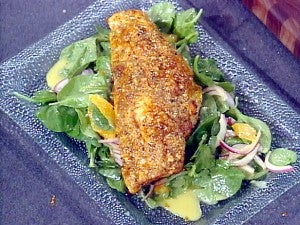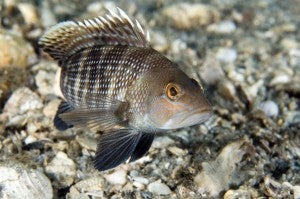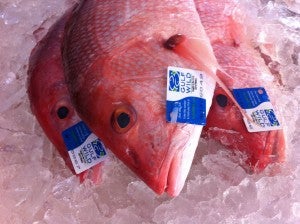
Grilled Grouper over Arugula & orange salad. Photo credit: Food Network/Emeril Lagasse
Grouper are delicious fish that are harvested in both the South Atlantic and Gulf of Mexico. In the Gulf of Mexico, these fish are managed under a catch share program, where species like red and black grouper have healthy populations. John Schmidt, a fisherman in the Gulf of Mexico who fishes for grouper, tells us about his experiences in the fishery and how it has changed for the better under a catch share. Finally, we are sharing a delicious and healthy recipe for grilled grouper over an arugula and orange salad.
Gulf of Mexico Grouper/Tilefish IFQ Program
The Grouper-Tilefish IFQ program was implemented in January of 2010. Prior to this program, commercial grouper and tilefish were managed with limited access fishing permits, trip limits, size limits, closed seasons and catch limits. These management measures resulted in overcapitalization of the fishery and subsequent early closures. Fishermen were going bankrupt and fish stocks were depleted. Since the fishermen have been operating under a catch share in this fishery, the stocks are rebuilding, discards of dead fish are down, the race to fish has been eliminated, and fishermen are able to grow their businesses in an industry that was previously struggling. Read More




